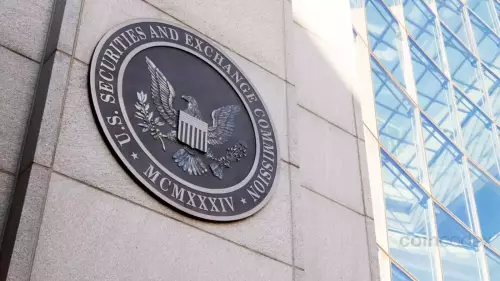Ethereum reclaims the USDT throne from Tron, driven by institutional adoption and DeFi. But what does this tug-of-war mean for the future of stablecoins and crypto?

Ethereum vs. Tron: The Battle for USDT Supremacy and What It Means
The landscape of 'Ethereum, USDT supply, Tron' is in constant motion. Ethereum has once again snatched the crown from Tron as the leading blockchain for Tether (USDT) deployment. Let's dive into what's driving this shift and what it signifies for the broader crypto ecosystem.
The Great USDT Flip-Flop
Since May 2025, the USDT supply on Ethereum has surged by nearly $17 billion, reaching approximately $77 billion. This impressive growth marks a significant comeback for Ethereum, which briefly ceded its top spot to Tron earlier in the year. Tron's current USDT supply stands at $76.23 billion, according to DeFiLlama, showcasing the neck-and-neck competition between these two blockchain giants.
Why the Shift? Institutional Adoption and DeFi
While retail users have historically favored Tron for its lower transaction fees, Ethereum's resurgence is largely attributed to institutional adoption. Major players like PayPal, with its PYUSD stablecoin, have integrated with Ethereum, further solidifying its position as a preferred network for larger transactions and DeFi activities. Ethereum's robust liquidity and expansive DeFi ecosystem make it an attractive choice for institutions seeking a reliable and scalable platform.
Tron's Continued Relevance: The King of Transactions
Despite Ethereum's regained dominance in USDT supply, Tron continues to lead in daily transaction counts. This highlights Tron's ongoing popularity among smaller traders who prioritize cost efficiency. The network's ability to process a high volume of transactions at a lower cost makes it a go-to option for everyday crypto users.
The Bigger Picture: Stablecoins and the Future of Finance
Tether's USDT remains the undisputed king of stablecoins, boasting a market capitalization of $174 billion. Circle's USDC follows in second place with $74 billion. The stablecoin market is also seeing new regulatory changes, pushing issuers to become more compliant with U.S. regulations. This is leading to more transparency and trust, attracting even more adoption of stablecoins for payments and financial services.
My Take: Ethereum's Institutional Edge
While both Ethereum and Tron play vital roles in the crypto ecosystem, Ethereum's ability to attract institutional flows gives it a distinct advantage. The integration of stablecoins like PYUSD, along with the potential for staking features in Ether ETFs, positions Ethereum as a primary settlement layer for blockchain-based finance. As traditional finance increasingly embraces digital payment infrastructure, Ethereum is well-positioned to capitalize on this trend. The outflows from Ether ETFs shouldn't scare you. Instead, consider it a sale!
Looking Ahead
The battle between Ethereum and Tron for USDT dominance is far from over. Both networks will continue to innovate and adapt to meet the evolving needs of the crypto market. One thing is clear: stablecoins are here to stay, and they will play an increasingly important role in the future of finance. So, buckle up and enjoy the ride! It's going to be a wild one!
Disclaimer:info@kdj.com
The information provided is not trading advice. kdj.com does not assume any responsibility for any investments made based on the information provided in this article. Cryptocurrencies are highly volatile and it is highly recommended that you invest with caution after thorough research!
If you believe that the content used on this website infringes your copyright, please contact us immediately (info@kdj.com) and we will delete it promptly.














































































